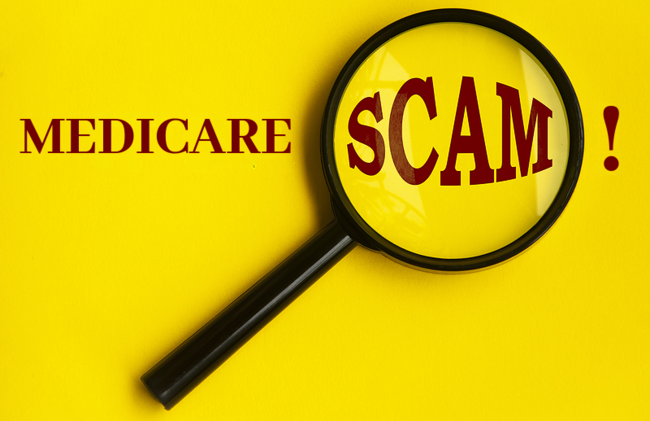With more than 62 million Medicare participants, there are few financial areas as inviting as is Medicare to unscrupulous scammers. Despite the best efforts to stop Medicare scams from proliferating, there is simply no way for law enforcement to keep up. Every year, there is more than $3 billion in fraud.
Unfortunately, there is currently no effective way to police routine scams, from the federal level. Beyond multi-million dollar Medicare crimes, the GAO has said that the best approach to stopping most scams is consumer education. Consumers are simply in a far better position than federal officials to identity and stop Medicare scams and fraud.
Diagnostic Signs of Scam
Not every seemingly odd billing cost in Medicare benefits is a scam. A large part of the challenge to fix incorrect billing comes from mistakes in using, explaining, and verifying medical billing codes.
Consumers are not necessarily expected to learn complex billing codes but may be held responsible for not verifying their bills for basic data, such as the days of appointments and “plain language” breakdowns of what services and help was given.
![]() Pro Tip: Meet someone in your provider’s billing office so you increase your comfort in asking questions regarding billing, and also signal your interest in understanding that treatment lines up with billing.
Pro Tip: Meet someone in your provider’s billing office so you increase your comfort in asking questions regarding billing, and also signal your interest in understanding that treatment lines up with billing.
Before we note the five biggest types of Medicare scams, here’s one more note to consider: studies suggest that almost 70% of all Medicare cases involve at least two of the five most common types of scam. The good news is that this deliberate over-grasping for money makes it easier to look for common patterns of scams in more than one bill.
![]() Pro Tip: Compare all of your provider bills, line by line, for consistency and get explanations for irregularities.
Pro Tip: Compare all of your provider bills, line by line, for consistency and get explanations for irregularities.
Five Biggest Types of Scams
The GAO has identified five basic types of Medicare fraud.
- Fraudulent billing, such as billing for services that were not provided once or many times (about 43 percent)
- Billing for services that were not medically necessary (about 25 percent)
- Falsifying records to support the original fraudulent scheme (about 25 percent)
- Paying kickbacks to participants in a fraudulent scheme (about 21 percent)
- Obtaining controlled substances, or misbranding prescription drugs (now almost 21 percent)
Of all types of Medicare scams, providers were the primary offender, 62 percent of the time.
![]() Pro Tip: Before choosing a provider, get a “a second opinion.” Not only is a second-opinion frequently good for health care, it can also include review of the provider’s financial practices. It helps to have a trusted friend, family member or advocate help look at reviews of providers online, their billing policies and the bills you receive.
Pro Tip: Before choosing a provider, get a “a second opinion.” Not only is a second-opinion frequently good for health care, it can also include review of the provider’s financial practices. It helps to have a trusted friend, family member or advocate help look at reviews of providers online, their billing policies and the bills you receive.
Scams are less likely to be perpetrated if you have a strong support system and second set of eyes.
Conclusions: Treating Scams Seriously
The word “scam” gives some insight on what to look out for. The word might be of French origin, meaning to “obscure.” Even more likely, scam is from US carnival slang. It’s also possibly from ‘scamp’ as in a “swindler, cheater” or, possibly, Danish skam.
The warning here, then, is three-fold.
- First, there is a language and coding peculiar to Medicare, and it can be confusing. Always ask questions.
- Second, anyone who is trying to sell you services needs to be able to satisfactorily explain, in your preferred language and in response to specific requests, what they are providing and how they are charging.
- Third, one sad reality is that almost 20% of all discovered scams actually involve the participation of a beneficiary/patient. This may be due to misunderstanding or manipulation. Even honest people or family members might be convinced “everyone does it this way.” The takeaway: If something doesn’t seem legit, it probably isn’t.
In conclusion, Medicare scams are increasingly identified through careful billing review. This is a truly a case of Buyer Beware. If you need assistance with your Medicare plan or providers, reach out to the licensed agents at Medicare Educators.

